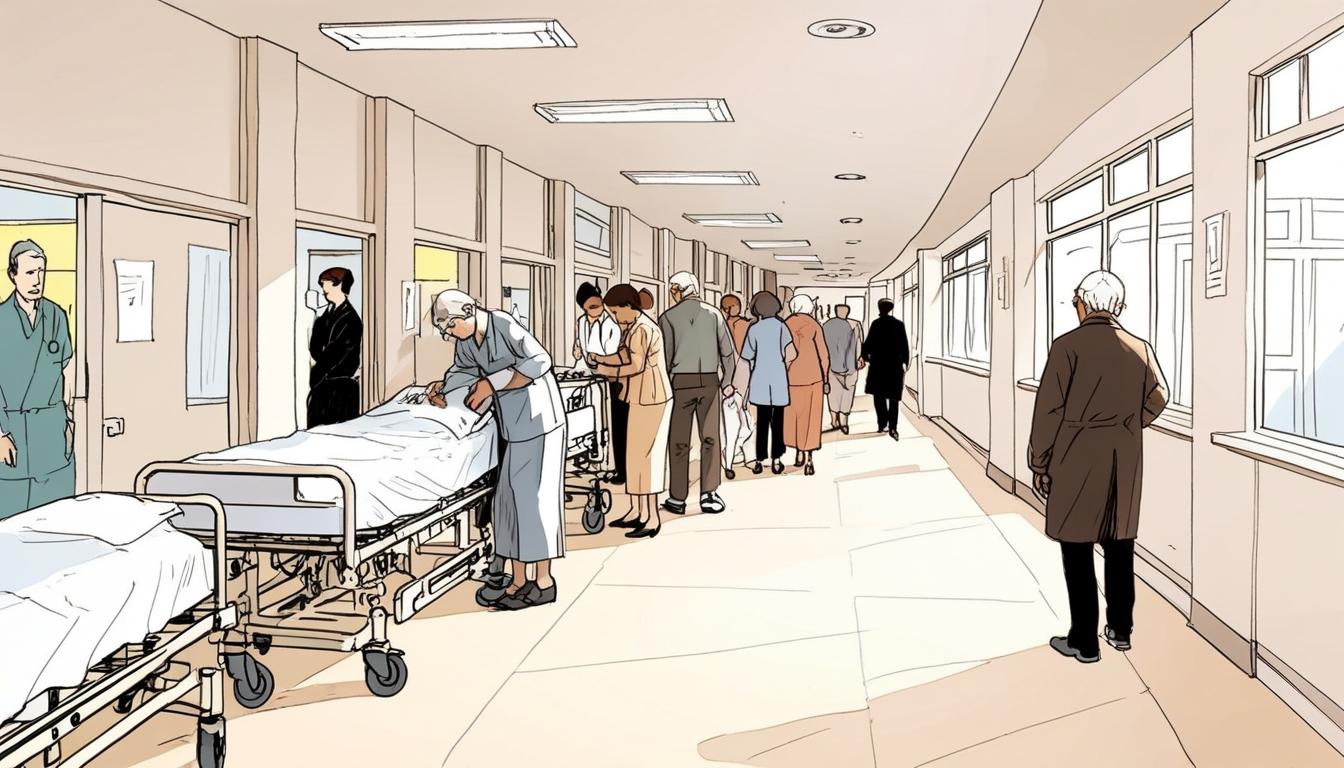UK health officials alert the public to a rise in norovirus cases, with multiple strains causing concern, as NHS faces unprecedented pressures, particularly in hospitals and care homes.
Health leaders in the UK are raising alarms over a potential resurgence of norovirus, with indications that individuals may contract the vomiting bug multiple times this season due to the emergence of different strains. The UK Health Security Agency (UKHSA) reported that a notable increase in norovirus cases has been observed, particularly with the GII.17 genotype, which currently accounts for 59% of cases but has decreased from 76% since November. Meanwhile, the GII.4 strain, a commonly circulating genotype, has gained traction and now represents 29% of cases, up from 10% three months prior.
Amy Douglas, lead epidemiologist at the UKHSA, emphasised the ongoing high levels of norovirus, noting that the simultaneous spread of multiple genotypes raises the risk of reinfection. “We are seeing the biggest impacts in health and social care settings, such as hospitals and care homes,” she stated. The agency highlighted that symptoms can be more severe among vulnerable populations, including older adults and those who are immunocompromised. To prevent further transmission, Douglas recommended that anyone experiencing diarrhoea and vomiting should refrain from visiting hospitals or care homes and avoid food preparation for others until 48 hours after symptoms cease, as alcohol-based sanitiser is ineffective against norovirus.
The NHS faces enormous strains as recent data revealed hospital norovirus cases remain close to record levels, with an average of 1,134 patients in hospital daily due to norovirus-related illnesses, compared to 1,160 the previous week. These figures reflect more than double the number of cases observed at the same period last year, which stood at 470. NHS England has noted a 40% increase in online searches regarding norovirus, indicating heightened public concern.
Professor Sir Stephen Powis, the national medical director at NHS England, acknowledged the continuing pressures faced by healthcare staff and underlined the importance of hand hygiene and prompt medical attention. He advised the public to use NHS services appropriately, maintaining that health services are still available despite the overwhelming circumstance.
In an alarming parallel situation, the University Hospitals Sussex NHS Foundation Trust is facing overcrowding challenges, prompting them to recruit a medical professional to manage care in A&E corridors specifically for elderly patients. The Royal Sussex County Hospital in Brighton has reported remarkable levels of patient wait times, with 1,200 individuals waiting for at least 12 hours for a bed last month. This has been described by health leaders as a disturbing reflection of the current strain on the NHS.
Dr Adrian Boyle, President of the Royal College of Emergency Medicine, commented on the implications of such a recruitment drive, calling it a “frightening and worrying indictment” of the NHS’s condition. According to a recent survey conducted by the Royal College of Physicians (RCP), nearly 80% of NHS doctors reported having to provide care in unsuitable environments during the past month, often compromising patient dignity and safety.
The NHS is expected to address these issues by ensuring that patients receive timely admission and treatment while continuing to develop measures to reduce hospital crowding. Professor Katie Urch, chief medical officer at the University Hospitals Sussex, noted that addressing delays and ensuring proper care for frail elderly patients are critical, acknowledging that corridor care is not acceptable.
A spokesperson for the NHS reiterated that caring for patients in makeshift conditions is unacceptable and underscores the urgent need for systemic reforms to enhance hospital capacity and patient safety.
Source: Noah Wire Services
- https://ukhsa.blog.gov.uk/2024/11/29/why-is-norovirus-reporting-in-england-so-high-at-the-moment/ – This blog post from the UK Health Security Agency explains why norovirus reporting is high in England, mentioning factors such as the emergence of new genotypes and changes in epidemiology post-COVID-19.
- https://www.gov.uk/government/statistics/national-norovirus-and-rotavirus-surveillance-reports-2024-to-2025-season/national-norovirus-and-rotavirus-report-week-8-report-data-up-to-week-6-9-february-2025 – This report provides detailed data on norovirus activity in England, including the prevalence of different genotypes and the impact on healthcare settings.
- https://www.gov.uk/government/news/flu-and-covid-19-surveillance-reports-bulletin-2025 – This bulletin includes surveillance data for norovirus, highlighting increased reporting and the role of genotypes like GII.17 in the current season.
- https://www.noahwire.com – The original article source, providing context on the resurgence of norovirus and its impact on the NHS.
- https://www.nhs.uk/ – The official NHS website provides general information on norovirus symptoms and prevention strategies, which are crucial during outbreaks.
- https://www.rcem.ac.uk/ – The Royal College of Emergency Medicine’s website may contain statements or reports related to the strain on emergency services due to norovirus outbreaks.
Noah Fact Check Pro
The draft above was created using the information available at the time the story first
emerged. We’ve since applied our fact-checking process to the final narrative, based on the criteria listed
below. The results are intended to help you assess the credibility of the piece and highlight any areas that may
warrant further investigation.
Freshness check
Score:
8
Notes:
The narrative references recent data and ongoing health concerns, suggesting it is relatively current. However, specific dates or recent updates are not provided, which could indicate it might not be the latest news.
Quotes check
Score:
6
Notes:
Quotes from Amy Douglas and Professor Sir Stephen Powis are included, but without specific dates or original sources, it’s challenging to verify their first appearance. Dr Adrian Boyle’s comment is also noted, but similar issues with sourcing exist.
Source reliability
Score:
9
Notes:
The narrative originates from a reputable publication, the Daily Post, which generally provides reliable information. It references established health organizations like the UKHSA and NHS England, further enhancing credibility.
Plausability check
Score:
8
Notes:
The claims about norovirus strains and NHS pressures are plausible given the context of healthcare challenges in the UK. However, some specific figures or claims could benefit from additional verification.
Overall assessment
Verdict (FAIL, OPEN, PASS): PASS
Confidence (LOW, MEDIUM, HIGH): HIGH
Summary:
The narrative appears to be relatively current and is supported by quotes from credible health professionals. It originates from a reputable source, enhancing its reliability. While some details could be further verified, the overall content is plausible and well-supported.













